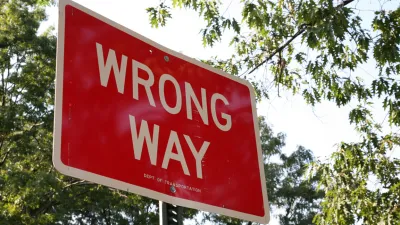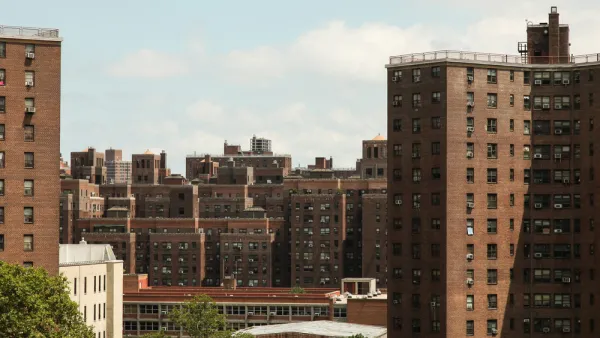The tendency of transportation planning of the 20th and 21st centuries to negatively impact poor and minority populations received deep attention on national media outlets over the past few days.

Corinne Ramey writes a long and thorough account of the inequity built into the U.S. transportation system. Ramey notes early in the article that race and transportation "have long been intertwined, whether it be federally funded highways that plowed through, or isolated, minority neighborhoods; Rosa Parks and the Montgomery Bus Boycott; or segregated streetcars and trolleys." Despite the progress made in recent decades, according to the article, discrimination is still built into the transportation system of the United States.
The article begins by citing the example of Buffalo, New York, where the Peace Bridge connecting the United States with Fort Erie in Canada. "In the shadow of the bridge sits a small neighborhood called the West Side, where the asthma rate is more than four times the national average, and residents report a host of other health issues." Rather than heading local concerns about the health impacts of the bridge, "[a] proposed expansion of the bridge’s on- and off-ramps will further encroach into the neighborhood’s streets."
But Buffalo only provides the first example of the inequity that is built into every corner of the country. Here, Ramey reveals the larger focus of the investigation: "Based on recent complaints provided by the Federal Highway Administration and Federal Transit Authority through Freedom of Information Act requests, as well as older complaints and several lawsuits, I closely examined about 40 cases of racial discrimination in transportation planning, many from the past 15 years."
The remainder of the piece delves into many examples from all over the country, with references to the prevailing scholarship on the subject.
Of note regarding the article: At some point, Slate changed the headline from a more inflammatory title "America's Transportation System Is Racist" to the current "America's Unfair Rules of the Road."
Kevin D. Williamson follows Ramey's reporting with a response in National Review. Although Williamson recommends the Slate article but pivots to describe the transportation system as "royalist" rather than racist.
FULL STORY: America’s Unfair Rules of the Road

National Parks Layoffs Will Cause Communities to Lose Billions
Thousands of essential park workers were laid off this week, just before the busy spring break season.

Retro-silient?: America’s First “Eco-burb,” The Woodlands Turns 50
A master-planned community north of Houston offers lessons on green infrastructure and resilient design, but falls short of its founder’s lofty affordability and walkability goals.

Delivering for America Plan Will Downgrade Mail Service in at Least 49.5 Percent of Zip Codes
Republican and Democrat lawmakers criticize the plan for its disproportionate negative impact on rural communities.

Test News Post 1
This is a summary

Test News Headline 46
Test for the image on the front page.

Balancing Bombs and Butterflies: How the National Guard Protects a Rare Species
The National Guard at Fort Indiantown Gap uses GIS technology and land management strategies to balance military training with conservation efforts, ensuring the survival of the rare eastern regal fritillary butterfly.
Urban Design for Planners 1: Software Tools
This six-course series explores essential urban design concepts using open source software and equips planners with the tools they need to participate fully in the urban design process.
Planning for Universal Design
Learn the tools for implementing Universal Design in planning regulations.
EMC Planning Group, Inc.
Planetizen
Planetizen
Mpact (formerly Rail~Volution)
Great Falls Development Authority, Inc.
HUDs Office of Policy Development and Research
NYU Wagner Graduate School of Public Service




























